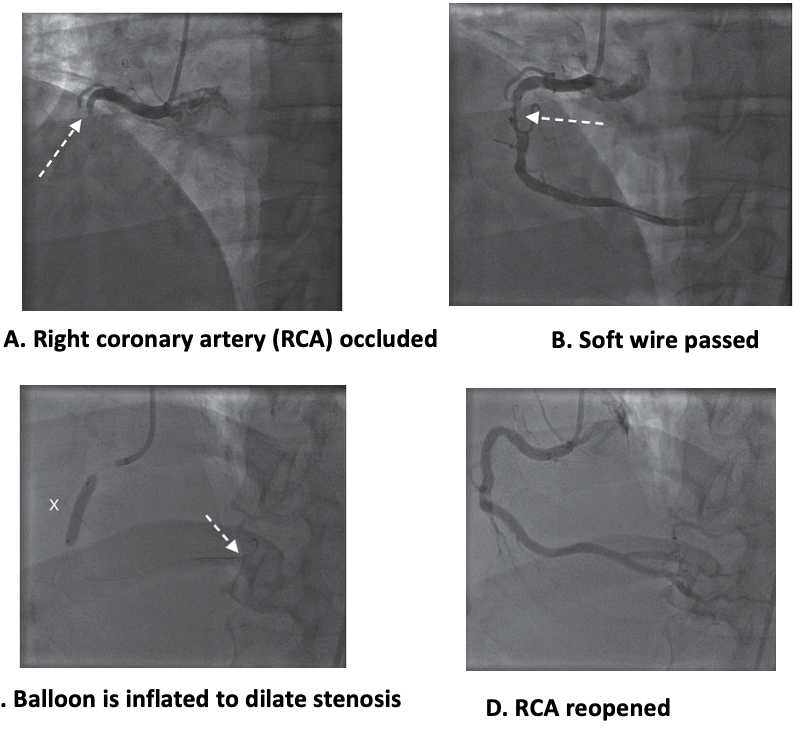PCI – Percutaneous Coronary Intervention
It is process to dilate coronary artery stenosis, using inflatable balloon and metallic stent introduced via femoral, radial, or brachial artery.

Complication
- Bleeding, hematoma, pseudoaneurysm
Serious Complication – Acute MI 2% – Stroke 0.4% – Death 1%
When metallic Drug-eluting stent: advised to take Aspirin, Plavix for 1 year
Antiplatelet agents commonly used during PCI
-
Aspirin: An irreversible cyclooxygenase inhibitor.
-
Thienopyridines: Clopidogrel: ↓ (ADP)-mediated platelet activation.
-
Glycoprotein IIb/IIIa inhibitors: Abciximab and eptifibatide; reduce CVS complications of PCI in the acute setting.
PCI versus CABG
Comparative trials between CABG and PCI all demonstrate a higher need for repeat revascularization with PCI than with CABG.
European Society of Cardiology (ESC) has recommended PCI only in cases of single- or double-vessel disease that does not involve the proximal left anterior descending artery.